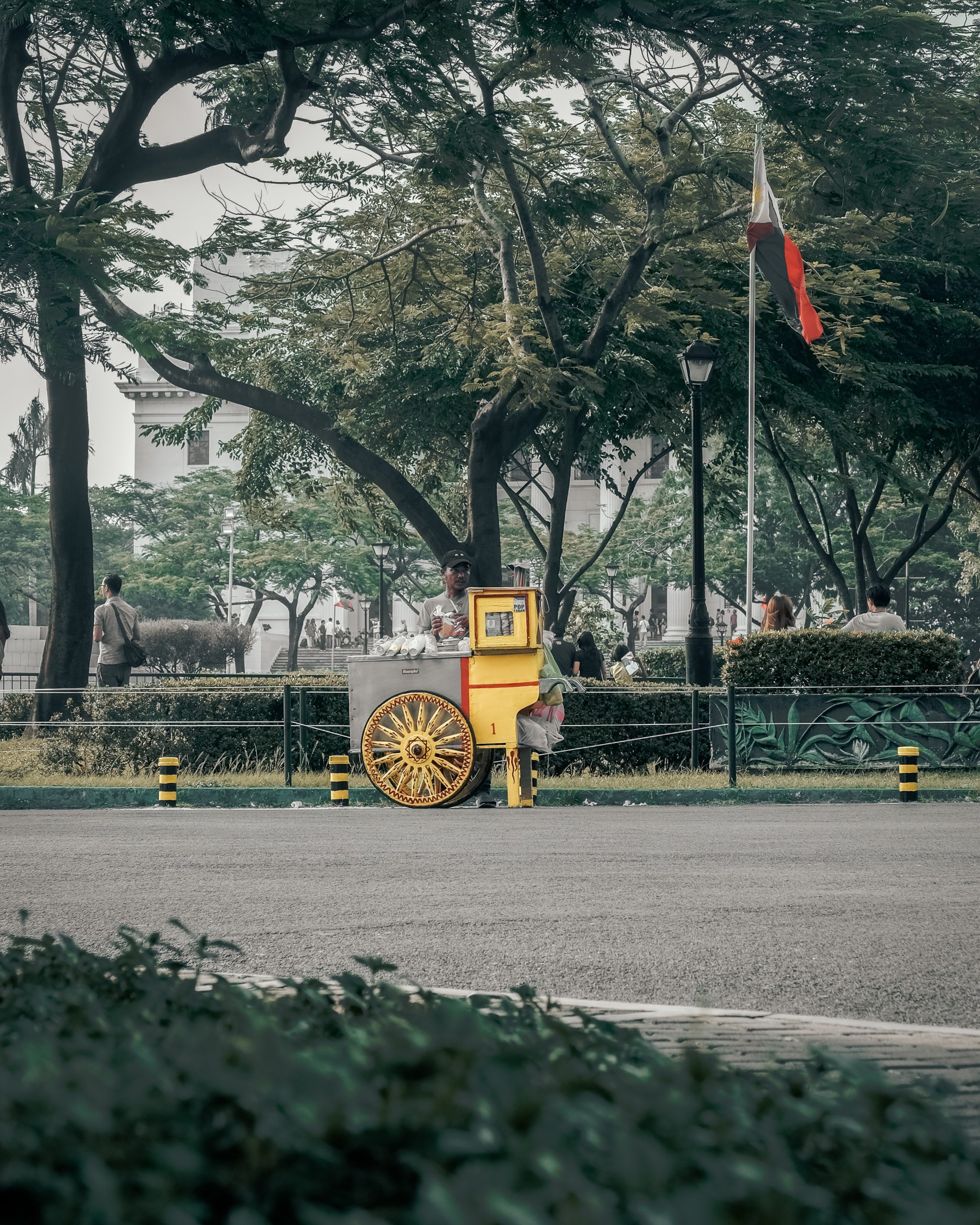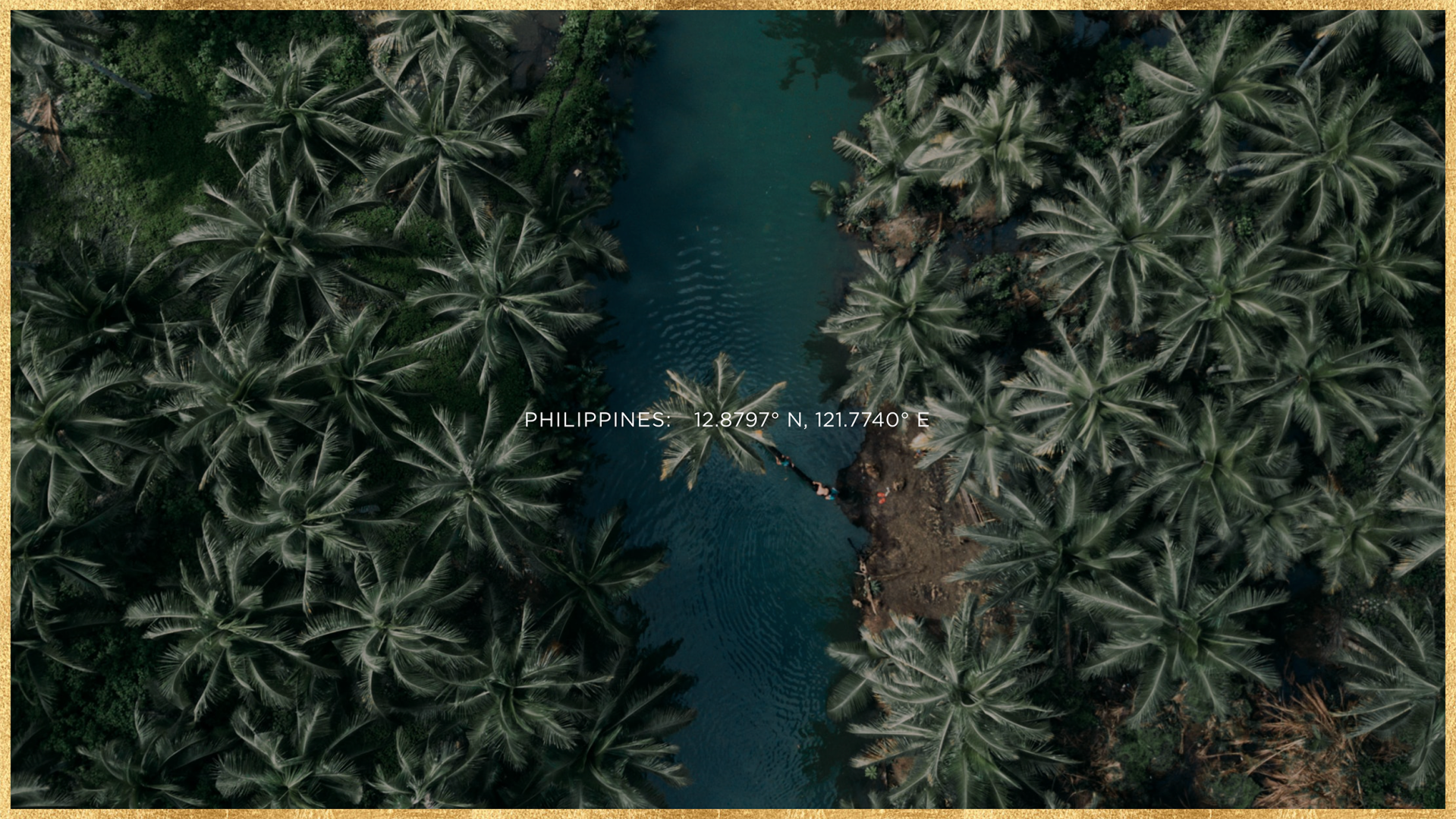On April 14, 1521, the Portuguese explorer Ferdinand Magellan and his Spanish companions presided over the first Christian baptism in the Philippines. As Father Pedro de Valderrama performed the rite, 800 tribal inhabitants went down into the churning waters and arose as new Christian converts.
The local chieftain, Rajah Humabon, and his wife, Hara Humamay, were the first to receive new “Christian names.” After the ocean’s womb enveloped them, they were reborn as Carlos and Juana, bearers of Christ’s presence on the island. Their former identities were replaced. The names given by their tribe were rendered obsolete. They became the first of many in the Philippines whose conversion to Christianity would include the act of renaming.
“But aren’t the names Carlos and Juana just Spanish names?” I asked my father as we discussed this historical event. He chuckled as we drove past enormous cathedrals under the scorching summer heat of Cagayan de Oro City in the Philippines. Parishioners bustled into the church sanctuaries, thirsting for communion with God.
My father replied, “That is very perceptive. They are Spanish names.”
I closed my eyes in confusion. “Then why are they called ‘Christian names’? What makes them Christian if they’re just Spanish?”
My father’s chuckle crumbled into a sigh. “Because they forgot where they were. ‘Spanish’ became synonymous with ‘Christian’ wherever they went. That’s how we got our last name.”
My family inherited our surname, Melo, from our ancestors. It means “one who hailed from Merlo, Portugal.” Ironically, I was neither from Merlo nor did I see myself as Portuguese. I grew up in the small city of Cagayan de Oro on the island of Mindanao where I was called Kagay-anon by my tribe and people group.
I knew where I grew up, and I knew the identity marker my land and culture gave me. But what did not make sense to me was my surname. It pointed to an ancestral origin thousands of miles away from the home I knew in the Philippines. My name claimed me as Portuguese, but my heart longed for my cultural heritage as a Kagay-anon and my sense of place in the city I loved.
I stared out the window of our car, watching Cagayan de Oro blur into the distance, as the music of church bells dissolved into the clang of steel and metal. Lamenting the Philippines’ history and the story of my people, I broke down in tears. The burden of my name weighed heavily upon my heart.
In 2016, my family migrated from Cagayan de Oro to Chicago, Illinois. Our surname traveled with us. Many Americans struggled to pronounce it correctly, asking, “Is it meh-low or mee-luh?” I remember visiting my first Starbucks in the United States where—in classic Starbucks fashion—they misspelled my last name: “Mellow.” It was as if my name had become an alien language.
I thought I’d find relief among fellow Christians, but instead I encountered ridicule. In youth groups and summer camps, others jokingly rhymed my last name with the word melon. Eventually, the mockery became so unbearable that I removed my last name from my social media accounts.
I soon decided to go by an entirely different name—one that might be more accessible to my American peers. So I began calling myself Ryan in an effort to be known, accepted, and loved by the people around me—in an effort to belong.
But in the process of renaming myself, I forgot where I came from. In my deep desire to be loved by the communities I sought to be a part of, I forgot who I was. I no longer even wanted to be called Filipino.
It seemed to me that being Christian in the United States was synonymous with being American—and that Christian unity meant sameness. So I “rebaptized” myself with a new name to fit in. At the time, it felt like a necessary sacrifice that had to be made—a performance that seemed like the right thing to do.
Despite these efforts and all the pain they represent, over time I came to recognize a different divine reality. God became human and bore the name Jesus. He walked on the borders of society, the margins that separated people—rich and poor, sinner and saint, Jew and Gentile, women and men. Suddenly, those lines of separation were blurred as people found themselves eating and laughing around the same table with Jesus at the center. And amid the cultural tensions, in the liminal spaces that divided worlds, Jesus spoke a new way of life into existence. A new community formed around his voice.
As Jesus walked along the edge of the Jordan River and was himself baptized into the deep, he arose and began his ministry that continues today through God’s mission in the church. The proclamation of the gospel continues to stretch into the farthest reaches of the world. This great commission of Jesus says, “Go and make and disciples of all nations, baptizing them” (Matt. 28:19).
Tragically, my personal experience and family history represents a “cultural baptism” that involved renaming and the erasure of local identity. This is an experience I share with many sisters and brothers of color around the world due to the effects of colonialism. Throughout history, there were times when Christian unity was confused and conflated with the efforts of European nations to expand their empires. Because of this, many people in the world have forgotten their own names—the names that come from their tongue and their tribe.
But what Christ did—and continues to do—is bridge the gaps. His name does not erase our names but instead gives them new meaning. The renaming of Abram to Abraham, for example, pointed toward God’s desire to see all peoples and nations reconciled, saying, “You will be the father of many nations” (Gen. 17:4). And in Christ, this covenant is being fulfilled.
In Acts 2, we read about the Holy Spirit’s indwelling, which unifies diverse peoples around the name of Jesus. The Pentecost miracle manifested in the speaking of tongues, where Christ bridged the differences between languages. They spoke in their native tongues yet were able to understand one another through the work of the Spirit. Afterward, they migrated to the very edges of the world to proclaim the gospel and embody the promise once given to Abraham: “All nations on earth will be blessed” (Gen. 22:18).
Just like the early church, we’re called to reconcile the nations through the gospel. As Jehu Hanciles writes, “The mission of God starts on the margins.” Indeed, the gospel finds itself in the spaces where worlds collide. And in Christ, our names have become bridges.

Sometimes I wonder what my indigenous name would have been. What if the Iberians had never arrived? What if Raja Humabon and Hara Humamay had never been renamed Carlos and Juana? Who knows what might have been?
But I know there is no way to reverse the consequences of colonialism. My name remains my name, and it can never be erased. Unlike the disconnect and discomfort I once felt with my name, today I believe the irony of my name is precisely where Christ meets me. My name literally represents a bridge between the Filipino and the Portuguese. Though it signifies the consequences of colonialism, God is redeeming it. For my name reminds me that Christ is on a mission to reconcile the nations away from the pangs of division and into his loving embrace.
I still lament how my name has been a constant reminder of my displacement from the Philippines and colonialism’s legacy. But in Christ, my name has also become something to be celebrated. It symbolizes for me Christ’s restorative work that seeks to reconcile nations by creating new communities where the powerful are humbled and the lowly are exalted. Our names are more than just words. Every name is a story, bringing to life worlds, realities, and ancestors through their utterance. The problem is when we don’t see those stories—when we push them to the peripheries of our imaginations. The problem is when we sacrifice those stories on the altar of convenience and personal comfort.
But God sees our names. He knows the stories they carry. Our Creator became a person to know us, to hear us, and call us by name, saying, “I am the good shepherd. I know my own, and my own know me” (John 10:14, CSB). One day, he will once again descend from the heavens and will return to us the true meaning of our names—to reorient our lands, stories, and cultures around the healing and holy presence of the Messiah. We will be welcomed into God’s kingdom where all peoples and nations belong.
May we prepare ourselves for the coming of our king who bridges the gaps of racial and ethnic divisions. For Christ is calling us to meet each other in the in-between—in the thin spaces where the gospel brings us together, as different as we are, to share meals and commune with Jesus.
As Christ reminded his early first-century followers in Revelation 2 and 3, he also reminds us today: “Let anyone who has ears to hear listen to what the Spirit says” (CSB). May we learn to listen once again. Indeed, may we learn to seek the glory of Christ’s hope, coming to heal and restore our names to beauty.










